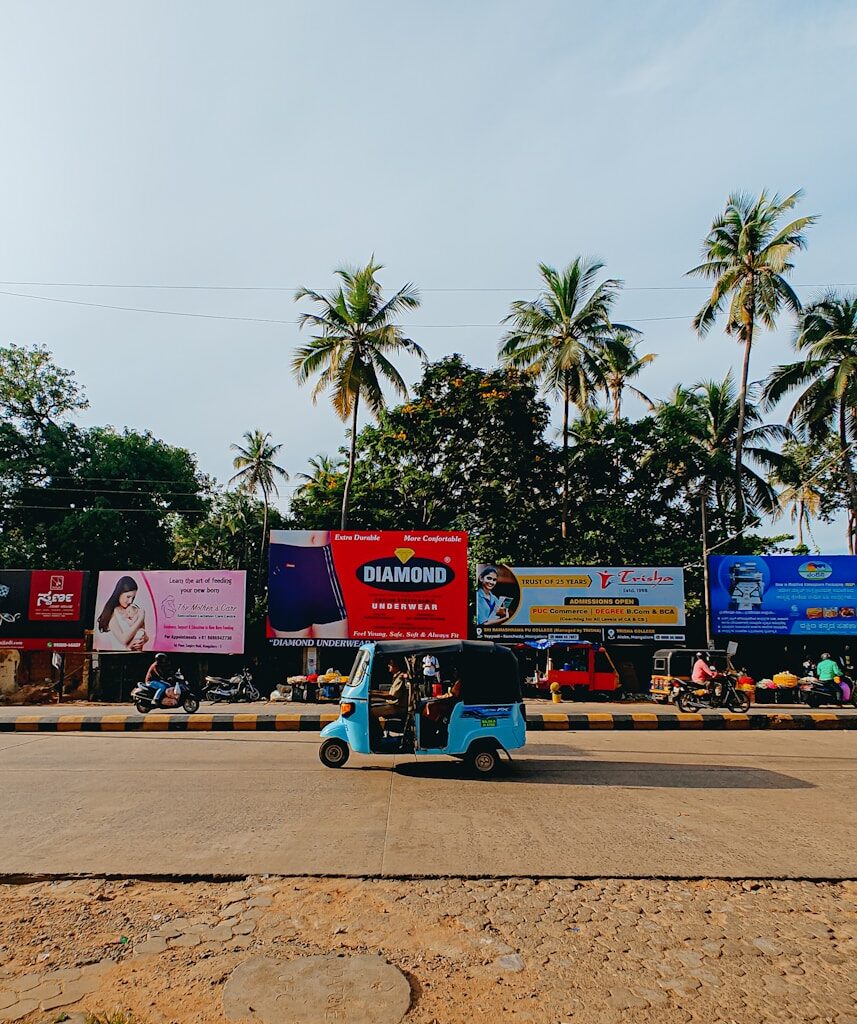In the age of digital travel planning, travelers often turn to search engines to find nearby hotels, whether they’re planning a weekend getaway or just looking for a last-minute stay. For hotels, local SEO is an essential strategy to ensure they show up in these searches, especially when targeting guests in the local area or nearby regions. Whether your hotel is located in the heart of New Delhi, Goa, or in a popular global destination, optimizing for local search can give you a significant edge over the competition.
1. Optimize Your Google My Business (GMB) Listing
The foundation of any effective local SEO strategy is claiming and optimizing your Google My Business (GMB) listing. Google uses this listing to display key information about your hotel in search results and Google Maps.
Steps to Optimize Your GMB Listing:
- Claim Your Listing: If you haven’t already, claim your Google My Business profile to manage how your hotel appears in search results.
- Complete Your Profile: Fill in all the details, including your hotel’s name, address, phone number, website, hours of operation, and amenities. The more complete your profile, the better Google can present your business to users.
- Add Photos: Upload high-quality photos of your hotel, rooms, amenities, and surroundings. A well-curated gallery can increase click-through rates and help guests visualize their stay.
- Use Keywords: In your description, incorporate local keywords relevant to your hotel’s location and services. For example, if your hotel is in Bengaluru, you could mention “business hotels near MG Road” or “luxury hotels near UB City Mall.”
- Encourage Reviews: Positive reviews play a huge role in local SEO. Encourage guests to leave reviews, and be sure to respond to both positive and negative feedback to show engagement and improve trust.
A well-optimized GMB listing increases the likelihood that your hotel will appear in Google’s local pack, which is the featured list of businesses that shows up at the top of local search results.


2. Local Keyword Optimization for Your Website
When optimizing your website for local SEO, it’s crucial to use location-based keywords throughout your content. Think about the search terms potential guests might use when looking for accommodation in your area.
How to Optimize Your Website:
- Incorporate Location Keywords: Add your city, neighborhood, or even specific landmarks into key areas of your website, such as title tags, meta descriptions, headers, and within your content. For example, if your hotel is located in Jaipur, you can use keywords like “luxury hotels in Jaipur,” “best boutique hotels near Amber Fort,” or “affordable hotels in Jaipur for families.”
- Optimize Service Pages: Create individual pages on your website for each service your hotel offers (e.g., dining, events, spa) and include location-specific keywords.
- Use Local Content: Publish blog posts or news articles about local events, festivals, or attractions in your area. This not only helps you rank for location-based searches but also positions your hotel as a local authority in the area.
For example, a blog post titled “Top 5 Things to Do Near [Hotel Name] in [City]” can help you rank for location-based searches and give potential guests useful information, making your hotel seem more appealing.
3. Optimize for Mobile Search
In today’s fast-paced world, many travelers search for hotels on their mobile devices, especially when they’re already on the move. Ensuring your hotel website is mobile-friendly is critical to improving your local search rankings.
Mobile Optimization Tips:
- Responsive Design: Ensure that your website design is mobile-responsive so it looks great and functions properly on all devices, including smartphones and tablets.
- Fast Loading Times: Mobile users tend to leave websites that take too long to load. Use tools like Google PageSpeed Insights to test and improve your site’s load time.
- Click-to-Call: Make it easy for mobile users to call your hotel directly by including a click-to-call feature on your contact page and throughout the site.
- Local Search Features: Mobile searchers often look for immediate information like directions or availability. Make sure your website includes maps, location-specific details, and the ability to book directly from a mobile device.
Being mobile-optimized improves user experience and boosts your chances of showing up in local mobile searches.


4. Leverage Local Links and Partnerships
Another effective local SEO strategy is acquiring local backlinks—links from other websites that point to your hotel’s site. Local backlinks signal to search engines that your hotel is an integral part of the community, which can improve your rankings for local searches.
How to Get Local Backlinks:
- Partner with Local Businesses: Work with local restaurants, tour operators, and event venues to cross-promote each other. Ask if you can be featured on their website with a link back to your hotel.
- Sponsor Local Events: If possible, sponsor or participate in local events or festivals and ask the event organizers to link to your website.
- Local Directories: List your hotel in local business directories or tourism websites. Ensure your name, address, and phone number (NAP) are consistent across all listings.


5. Focus on Location-Based Content
Creating location-based content can help boost your hotel’s local SEO by providing valuable information to travelers about your destination. Whether it’s through blog posts, landing pages, or local guides, offering helpful content will not only increase your search visibility but also engage potential guests.
Examples of Location-Based Content:
- Blog Posts: Write about local attractions, cultural experiences, or seasonal events in your area. For example, “Top 10 Things to Do in [City] During the Summer” or “A Local’s Guide to Exploring [City].”
- Landing Pages for Attractions: If your hotel is near major attractions, create dedicated landing pages to promote them. For instance, “Hotels Near [Landmark] in [City]” or “Explore the Best of [City] from Our Hotel.”
- Guest Testimonials: Feature guest stories or testimonials about what they loved most about your location, local events, and how your hotel made their stay special.
This type of content not only helps you rank for relevant location searches but also positions your hotel as an expert in the local area, enhancing your credibility.

